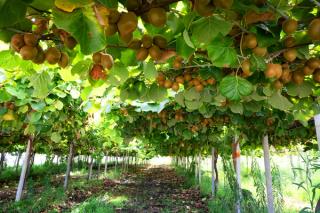
Achieving consent for tree maintenance: Protecting powerlines and ecosystems
- Client Name
- Auckland Council, Arborlab Ltd, and Vector
- Location
- Auckland, New Zealand

Challenge
Councils and critical network utility providers face significant challenges from the conflict between their infrastructure and trees growing in the same space, creating serious public safety, property, wildfire, and network reliability risks.
To mitigate these risks, a proactive and cyclical vegetation management strategy is required. Due to the sensitive ecological environments that electricity networks often run through, ‘guardrails’ to suitably protect indigenous fauna such as birds, bats, lizards and frogs, also needed to be established.
Given the ongoing nature of the tree work and the Auckland-wide geographical coverage, our Clients sought a series of process-based resource consents to enable tree trimming and removal within both public and private land that is backed by professional arboricultural assessment and ecologist support.
This project aimed to balance infrastructure integrity with environmentally sustainable outcomes, particularly given the increasing severity of weather events that further highlighted the urgency for mitigating the risks.
In alignment with Auckland Plan 2050's vision for secure and resilient utilities, this work supports the long-term sustainability of Auckland’s electricity infrastructure and protection of precious wildlife.
Solution
SLR was selected to work on this project due to our planning expertise as well as our previous experience developing efficient and sustainable solutions to complex infrastructure challenges. SLR’s Planning team contributed to the project by designing process-based consents that incorporated specialist technical reports tailored to the geographical, environmental, and regulatory complexities of Auckland’s electricity distribution network.
We also developed companion Certificate of Compliance permits that allowed the holders to undertake ‘urgent work’ where the risk from conflict was deemed to be particularly high. These permits utilised an abridged assessment process (e.g. for works that require completion within a couple of days), yet still provided for fauna protection and arboricultural best practice.
SLR’s commitment to sustainable and innovative methods went beyond the Clients’ expectations, delivering within particularly tight timeframes to address the immediate project needs but also the long-term sustainability of the electricity distribution network.
Impact
The resource consents facilitate projects that will have a transformative impact on communities across the region by strengthening the electricity distribution network’s reliability, reducing outages, mitigating public safety risk, and supporting community wellbeing by minimising disruptions to power supply.
“I found working with SLR - particularly Simon K and Karen I - to be very professional and supportive. Their extensive planning advice and experience consistently contributed to successful outcomes across all the projects we engaged on.“
Aaron Clifton, Overhead Services Arboriculture Operations Manager, Auckland Council

